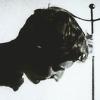Julian Lage on Collaboration in the New Age of Guitar
Sunday, Oct. 26 @ Melting Point
The phrase "child prodigy" occurs often in written accounts of jazz guitarist Julian Lage, who honed his six-string skills while most of his peers were watching cartoons. You may recall Lage as the subject of the short 1996 documentary Jules at Eight, or from the then-13-year-old's duet with vibraphonist Gary Burton at the 2000 Grammy Awards.
But while many wunderkinds flame out in spectacular fashion, the 26-year-old, New York City-based musician has parlayed that early attention into an impressive and still-unfolding career.
Lage transmits a warm and curious quality via telephone, where he tells Flagpole he has just wrapped up a teaching session and is preparing for a weeklong residency at East Village performance space The Stone. The six-night series will find Lage playing two shows each evening with a constantly rotating cast of musicians—"12 different projects" in all, Lage says with an audible grin.
"I'm learning as I go—what things carry over from one project to another," Lage says of his collaborations. "[It's about] being available for what the project needs. And a big part of that is letting certain things that were helpful the previous night expire the next night."
Lage is creatively restless to an exceptional degree. Although he is classically trained, his foundation is in improvisation. He uses both sets of skills with chameleonic effect, most recently in his pairing with guitarist Chris "Critter" Eldridge, a force on the new-bluegrass scene known for his work with groups like the Infamous Stringdusters and the Punch Brothers.
Lage and Eldridge bring their show to Athens Sunday, Oct. 26. It's an exploration of American acoustic music in all its storied, resonant glory.
"It came about very organically," Lage says of the partnership. "I met Critter through his work with Punch Brothers… As friends, we got along really well, and as guitar players, we shared a lot of the same priorities and sensibilities and interests. Not just in the bluegrass and jazz realm, but elsewhere: popular music, classical.
"We hit it off," he continues. "We'd get together and spend a lot of time practicing when we were both in town—again, just as friends. At a certain point, we [thought], 'Let's try doing this as a project'."
I think we're seeing cool stuff today from young people who have Van Halen and Alan Holdsworth in their lineage as much as Jim Hall or John Fahey.
With a shared adoration for guitar gods like John Carlini, Robben Ford and Jim Hall ("We grew up reading the same issues of Guitar Player," says Lage, laughing), the pair envisioned the project as "a confluence of improvised music [and] acoustic string music tradition in a way that feels integrated with songs," explains Lage, adding that he and Eldridge are "trying to… feature flat-top acoustic guitars in a light that we know is there but maybe hasn't been seen in the public record so much."
The collaboration has thus far spawned a short set of original tunes (2013's Close to Picture EP) and the recently released Avalon, an expertly recorded live set from the historic Avalon Theatre in Easton, MD. The music feels lived-in yet new, the Great American Songbook approached with a healthy mix of reverence, exuberance and virtuosity.
On Avalon, straightforward versions of bluegrass standards like Norman Blake's "Ginseng Sullivan" sit alongside numbers like "Steady Proof," an intricate, imaginative original that blends traditional acoustic flavor with an odd-metered, almost prog-like rhythmic approach.
The record serves as a reminder of the timelessness of the guitar, which has seen its profile diminished in popular music over the past decade. Lage muses thoughtfully on the topic, dismissing talk of the instrument's supposed demise.
"From my perspective, the guitar is a vast forest with some parts known and a lot unknown," he says. "That's what's exciting to me about the instrument. In each person's hands, it kind of has a different blueprint… I feel optimistic in the sense that I think the guitar is something to be discovered by everyone."
Additionally, he says, the fact that guitars have fallen out of favor with the radio-listening public may actually inspire a new generation of players to find their own sound.
"I think that makes it very appealing. I played guitar as a little kid because my father played it, but I think I continued because people around me didn't play it. I liked that it wasn't an obvious choice."
Indeed, a glance at the underground reveals that guitar music in 2014—anchored by names like Lage and Eldridge, but also a young generation of Fahey-obsessed Primitivists like Daniel Bachman and graying free-form experimenters like Bill Orcutt—is thriving. Interestingly, it's similar to what was happening with the instrument a century ago, says Lage.
"It was like the wild west" back then, he says. "It was kind of country, kind of jazz, kind of virtuosic classical technique. Nothing had been pinned down quite yet. I think we're seeing cool stuff today from young people who have Van Halen and Alan Holdsworth in their lineage as much as Jim Hall or John Fahey. There's a crazy hybrid aesthetic that could only happen now. And it's not even as fleshed-out as fully as it will be. So, that's exciting."
WHO: Julian Lage and Chris Eldridge
WHERE: Melting Point
WHEN: Sunday, Oct. 26, 7:30 p.m.
HOW MUCH: $12 (adv.), $15 (door)
More by Gabe Vodicka
-

-

-

Shane Parish & Sean Dail
Saturday, Feb. 29 @ Hendershot's Coffee Bar










comments